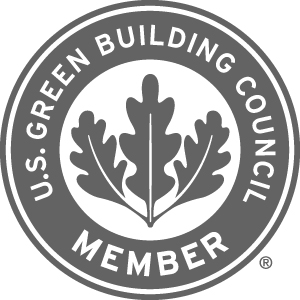
“Hi, my name is Rob and I’m a recovering public school teacher.” Before I was a green builder, I taught high school for seven years. I loved it for six and three quarters. One of the biggest forces that convinced me to leave education was the constrictive state testing system. I recognize that it is absolutely necessary to have standards, indicators and tests, however that can limit creativity and energy in the classroom. I am a very experiential teacher and believe that of all the learning styles, you can reach the most people by having them “see” and “do.” Teaching to the test strangled me out of the classroom.
The USGBC’s LEED Version 3 is a great lunge toward experiential learning using tests and measures that make pragmatic sense. My biggest complaint about the old LEED AP program was that it tested people on their ability to complete the certification process, not their green building knowledge. LEED V3 will include the LEED 2009 Rating and certification system, the new professional accreditation & education program and LEED online. It is the USGBCs goal to streamline the certification process for LEED projects and evolve their metric to be more practical and efficient. They are not reinventing the wheel, just improving upon the existing. I’m so glad to see the USGBC respond in this way.
The LEED rating system turns 9 this year with lots of momentum. As of January there were 17,450 registered and 2,122 certified commercial projects and 13,836 registered and 1,304 certified residential projects. There 77,434 LEED Accredited Professionals. In response to increasing urgency of conserving resources and their own internal and external initiatives, USGBC aims to continually improve the LEED system.
Here’s a description of the changes that are heading our way:
LEED 2009 :: Rating System Changes
There are 4 major goals of this revamp:
First, USGBC (staff, LEED Steering Committee, and LEED committee volunteers) scrutinized the credits within the different rating systems with the goal of consolidating, aligning and updating them. This should simplify the systems and fix issues that previously existed. They also scrubbed the Credit Interpretation Rulings, eliminating the fluff and improving the remainder.
Secondly, the rating system will be updated on a regular schedule in order to evolve with the green building industry. This should allow the USGBC to respond to feedback on credit interpretations and alternative compliance paths.
The third, and possibly the biggest change, is the transparent weightings that will be applied to the credits. Here, a logical, scientific approach was taken to give more credit where more credit is due. Basically, the more the positive impact a green building strategy has on the environment, the more value a credit will have.
Fourthly, bonus credits will be rewarded for a project team recognizing regional priorities and implementing strategies to uphold those. The LEED Steering Committee is working with Regional Councils and Chapters to determine the priorities for different geographic areas.
These changes are scheduled to take affect in April of this year. If a project is already registered when the new system rolls out, the team will have the opportunity to upgrade to LEED 2009, or stick with the system in which their project was originally registered. LEED 2009 is for New Construction (commercial), Existing Buildings, Operations and Maintenance, Commercial Interiors, Schools, Retail, Healthcare and Core and Shell.
In the next installment I will review the changes to the LEED AP program and I will explain why I think that builders should become familiar with LEED, take some USGBC courses and even become LEED APs.
Informal Poll:
The USGBC repeatedly states that they do not treat the LEED rating system as a building code. What do you think about that? Please comment.
Weekly Newsletter
Get building science and energy efficiency advice, plus special offers, in your inbox.











3 Comments
LEED AP
Rob - I just took the beta version of the LEED AP+Homes test this week, and I can safely say that I am profoundly disappointed with the exam they assembled. For starters fully half of it was from the commercial sector, and there was absolutely no indication that this would be the case in the exam guide. About half of the rest of it was about green building concepts, and the balance was literally a trivia contest - How many points does this credit allow, etc. How useless is it to make adults memorize arcane bits of information that anyone with a double digit IQ can get by looking at a piece of paper? I may or may not pass, and, frankly, I didn't expect much from what I have heard about the other AP exams from friends, but it just ticks me off that we have to submit to this type of abuse instead of undergoing a real test of knowledge. Then again, that's just my opinion, and I am known to be cranky sometimes.
Interesting
It's great to hear from someone that has taken the beta test. Were you asked to give feedback after the test? I know that the USGBC was very interested in hearing from people prior to releasing the test. Do you think that the inclusion of commercial material is a function of their impetus on integrating all of the rating systems? The majority of my experience is in residential construction. In my opinion, I don't see the benefit of commercial questions being in the Homes exam. With that said, there are a few commercial questions on the NC Residential General Contractors test. It is definitely something that I will ask the USGBC and GBCI. Thanks for your comments.
LEED Test
There was an opportunity to leave comments at the end, but I chose not to. I have, however been very vocal about my issues with the test with USGBC staff and others in the industry. I imagine that people who had prior LEED commercial experience will do much better than those of us who didn't. The basic issue is that it addresses concepts only minimally and obscure details in depth. It never seemed to me that memorization of facts over understanding concepts served much purpose.
Log in or create an account to post a comment.
Sign up Log in